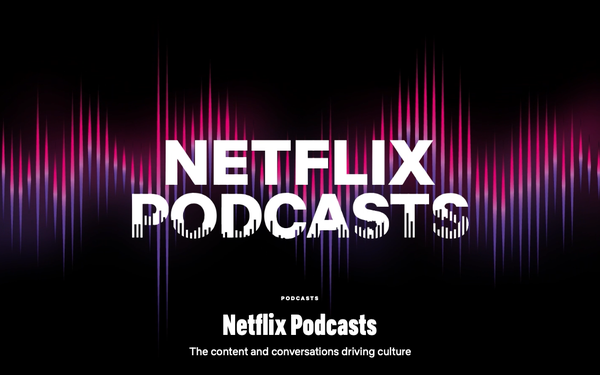
Expanding its effort across all kinds of video formats, Netflix
is looking to raise its exclusivity of content across all types -- now with video podcasts.
Right now, much of its traditional movie and TV studio library product still has a sizable number of
shows shared with other streamers -- including Hulu, Disney+ and Amazon Prime Video, among others.
The lists includes top TV network run series such as “Grey’s Anatomy,”
“Gilmore Girls,” “Better Call Saul” and “NCIS." For example, seasons 1 through 20 can be found on Netflix and Hulu. Starting with season 21, new episodes can be found
only on Hulu, ABC, and Disney+. Netflix gets those seasonal episodes the following year.
Approximately 75% of Netflix movies and TV shows are now exclusive, compared to around 50% three years
ago.
advertisement
advertisement
But as it looks forward to other growing video interactions, Netflix also wants exclusivity -- especially with video podcasts.
This is an area where competitor YouTube has seen
massive growth, and one that Netflix would like to follow.
Netflix already has a deal with
Spotify to start video podcasts next year for around 20 shows at launch starting up in 2026, including many that are sports-focused.
And currently, according to one Bloomberg report,
Netflix wants to make a licensing deal exclusively with iHeartMedia for its roster of video podcasts including “The Breakfast Club,” “Las Culturistas,” “Jay Shetty
Podcast” and “Stuff You Should Know.”
In a possible exclusive deal, this would affect YouTube because some of this content also appears on that platform.
Netflix
wants to take care of the future -- and that comes with a focus on Gen Zers and Millennials.
Netflix sees opportunity with the move into video podcasts -- a growing area among young consumers
-- at least when it comes to promoting content that it hopes will bring in those consumers into its orbit.
The goal seems to be to pulling in young video consumers in the hope of transitioning
into traditionally longer-form video, with regular-looking TV shows and movies.
And this goes for brand/advertising integrations and monetization as well -- when looking at its overall
exclusive moves.
Research from Ampere Analysis shows that Netflix put in 12% more advertising in its original content (all exclusive) than with its licensed deals.
Netflix knows video
-- of all types -- is in demand. But how far does it go?
Earlier this year, Netflix announced it was testing a short-form video feature -- an effort with video clips of sorts. Strong
viewership demand already exists for this via apps such as TikTok and Instagram Reels.
And yes, add its main competitor YouTube -- which has its popular YouTube Shorts.
Is Netflix
missing anything else?